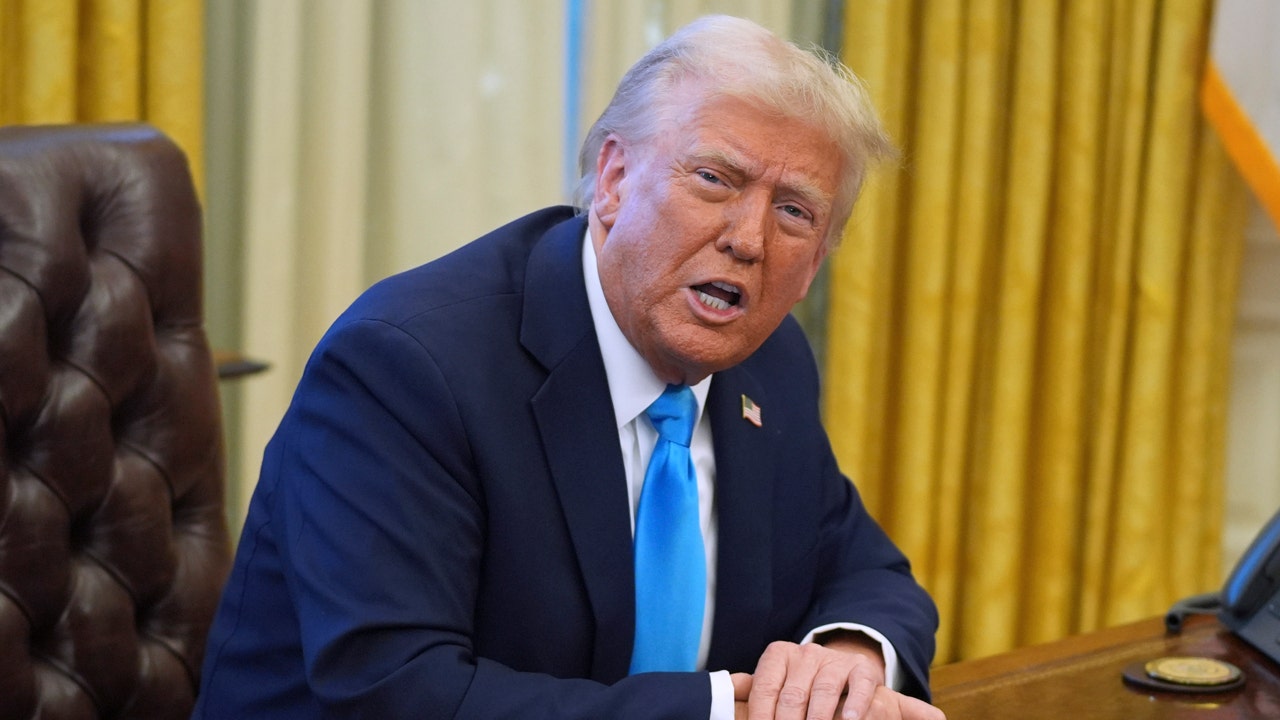WASHINGTON – President Donald Trump is touting “tough” new measures to confront Iran as he seeks to deter the country from getting a nuclear weapon, but said he hopes not to use them.
Trump signed a presidential memorandum Tuesday authorizing more aggressive measures toward Iran. He also threatened “total obliteration” of the country if there is another attempt on his life by Tehran.
“They can’t have a nuclear weapon,” Trump said, adding: “We’d be very tough if they insist on doing that.”
Trump aide Will Scharf said during the signing ceremony in the Oval Office that the memorandum “seeks to impose maximum pressure” on Iran with measures similar to Trump’s approach during his first administration.
“The basic idea here is to have every department and agency or many departments and agencies in your government attempt to sanction and control Iranian activities, particularly relating to the Iranian nuclear program and the Iranian export of terrorism through support of various proxy groups abroad,” Scharf said.
“I’m going to sign it but hopefully we’re not going to have to use it very much,” Trump said during the ceremony. “We will see whether or not we can arrange or work out a deal with Iran and everybody can live together.”
Trump has accused former President Joe Biden’s administration of skirting existing deterrence measures as it sought to revive an Obama-era nuclear pact the Republican president jettisoned during his first term.
Trump in his first term imposed what he described as a “maximum pressure campaign” on Iran that he argued Biden had undermined with loose enforcement of sanctions.
Biden did not remove sanctions Trump had placed on Iran during his first term. But Republicans argue that he did not do enough to restrict Iran’s oil revenues and its ability to fund proxy groups that the U.S. has designated as terrorist organizations.
FILE PHOTO: A gas flare on an oil production platform is seen alongside an Iranian flag in the Gulf July 25, 2005. REUTERS/Raheb Homavandi/File Photo
Trump pulled the U.S. out an Obama-era agreement that had stalled Iran’s nuclear weapons development. in 2018. The Biden administration tried unsuccessfully to negotiate another deal.
Secretary of State Marco Rubio told senators at his confirmation hearing that believes the U.S. should remain “open to any arrangement” that advances safety and stability in the region.
But he warned: “Any concessions we make to the Iranian regime, we should anticipate that they will use, as they have used in the past, to build their weapons systems and to try to restart their sponsorship of Hezbollah and other related entities around the region.”
Biden also promised to give Tehran access to $6 billion in frozen Iranian assets in order to facilitate the release of five Americans in a prisoner swap. Before the administration left office, a U.S. official told USA TODAY that none of the $6 billion was ever made available.
His administration repeatedly extended a sanctions waiver on $10 billion in funds that allowed Iraq to buy electricity from the country. The Biden administration said revenue from both agreements could only be used for humanitarian purposes.
Republicans were highly critical of both actions and accused the administration of lining Tehran’s pockets.
They also urged Trump ahead of his inauguration to redesignate the Houthi militant group as a Foreign Terrorist Organization, which he did through executive action shortly after taking office.
Under the Biden administration the Iranian proxy group was delisted as an FTO to help facilitate humanitarian assistance to Yemen. The State Department deemed it a Specially Designated Global Terrorist group last year over its sustained attacks on commercial shippers in the Red Sea.
Over the past four years the U.S. has issued sanctions against Iran, its military and the militant groups it supports for a variety of illegal or destabilizing activities.
US announces fresh sanctions on heels of Iranian missile and drone attack on Israel
After Iran launched missile and drone attacks on Israel last April, the Biden administration sanctioned its Islamic Revolutionary Guard Corps, defense ministry and individuals connected to its military industry. It sanctioned Iran again in October for a ballistic missile attack on Israel and slapped sanctions on the IRGC in December for attempting to meddle in the 2024 presidential election.
The Justice Department has also levied criminal charges against individuals with ties to Iran in a thwarted plot to assassinate Trump before the election.
Contributing: Reuters
(This story has been updated to include more information.)
This article originally appeared on USA TODAY: Donald Trump taking “tough” approach on Iran













